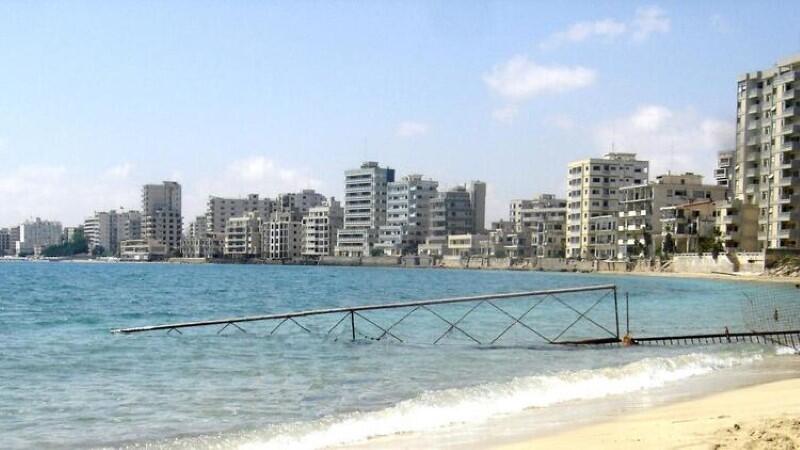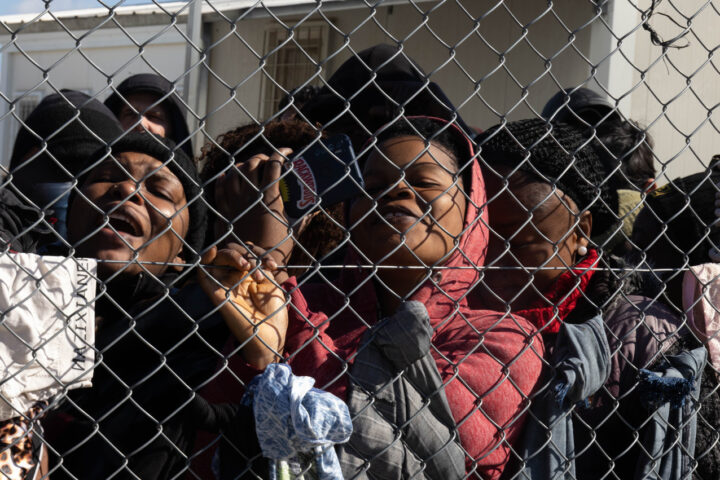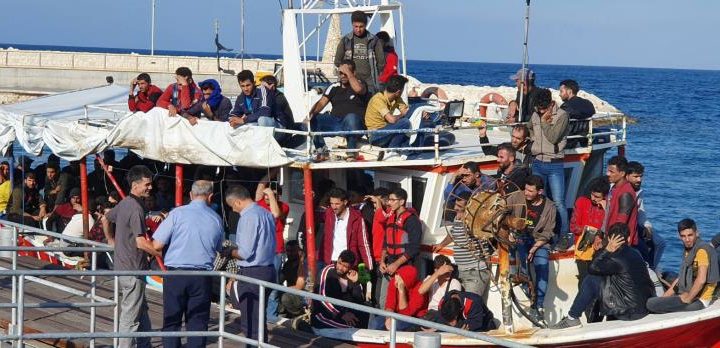A leading lawyer who has spearheaded many cases in European courts seeking justice for Greek Cypriot refugees has warned that “time is running out” to challenge Turkey, which wants to re-open the ghost town of Varosha.
Achilleas Demetriades, who has won several landmark cases at the European Court of Human Rights, said “Turkey is stalling for time” until it decides how to proceed with the properties in Famagusta, which Ankara has set its sights on ever since a large part of the port city was fenced-off following the Turkish invasion and occupation in 1974.
A fortnight ago, officials from Turkey and Turkish Cypriots organised a panel discussion at the Sandy Beach hotel inside the ‘fenced-off’ area concluding that the hotel strip and the neighbourhoods behind it should be developed soon after 26 April elections in the north.
“Turkey wants to develop the entire coastal strip stretching from the Constantia hotel to the Golden Sands,” Demetriades warned.
He urged Famagusta refugees to take joint action and mobilise all stakeholders, including the municipality, the business chambers, professional groups and the Cyprus government.
“The first step is that all properties – the 425 parcels along the hotel strip and the 6,450 plots within the ‘fend-off’ area – must be properly recorded and all the information about the rightful owners updated at the Land Registry.”
He said that the only defence the refugees have is to take joint action and to block all efforts by Turkey.
“All these years, not much had been done because the issue of the return of Famagusta had been high on the agenda of political discussions, as part of a comprehensive solution to the Cyprus problem,” Demetriades said.
“Now, Turkey has declared it wants to develop the entire area. And from the 32 years’ experience I have from the ECHR, whatever Turkey declares it will do, it eventually does.”
He said that the people of Famagusta are disappointed by the dithering of politicians and for allowing the Famagusta issue to remain unresolved, while there is also a personal matter, where property owners might seek compensation from the Immovable Property Commission (IPC) in the north.
Effective remedy
Already, some 281 cases have been filed at the IPC by Greek Cypriots, with at least one case at the ECHR arguing that the IPC could not offer an effective remedy.
Turkish officials estimate it will cost them about €2 bln to compensate Greek Cypriot refugees, both individual households and companies whose assets were lost because of the occupation.
However, other bi-communal initiatives have placed that value, as well as the cost to rebuild the city entirely with new infrastructure, several times higher.
Demetriades argues that if there is not enough resistance from the owners of properties, then Turkey will say that Greek Cypriots are no longer interested in these properties and that it is rightfully opening up the fenced-off area to development.
“It is not my opinion that they should settle or sell,” he said.
Pantelitsa Evagorou, an associate at Demetriades’ law firm, said that Turkey’s aim for fenced-off Varosha is to close all cases with a unilateral statement that will refer only to the delays in the processing of applications at the IPC.
She added that applicants at the ECHR argue that Turkey’s stalling tactic does not satisfy their human rights and they will be deprived of being allowed to defend their violation of property ownership.
“The next step is for the Republic of Cyprus to file its observations (to the ECHR) as it has stated it will support the applicants in the case of (seeking recourse for) Famagusta.
In the case of (applicants seeking recourse for) Tymbou, the Republic of Cyprus will not do the same and the ECHR is expected to proceed to a final decision,” Evagorou said.
Demetriades was concerned, however, why the government chose to support the case of Famagusta refugees and not of those who lost properties in Tymbou, where the Turkish Cypriot airport of Ercan operates.
He said the next session of the Council of Europe’s Committee of Ministers is on March 3-5 where they will have to decide on the implementation of judgments by the ECHR.
He also said that following President Anastasiades’ declaration to punish Turkey for not implementing ECHR decisions by depriving Ankara of receiving EU funds, it is unclear why Cyprus does not seek €90 mln that were ruled against Turkey in 2014, from pre-accession aid.
Of this amount, a third had been earmarked as compensation to the 1,500 families of missing persons since 1974, while the remaining would go to enclaved persons, without clarifying what the terms would be for this money and which enslaved persons would benefit.










